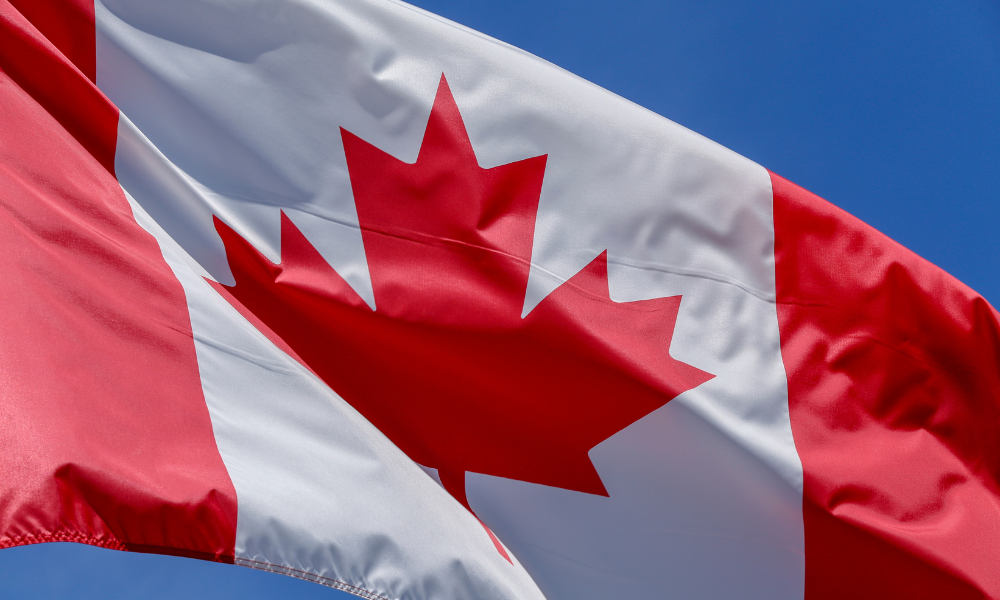As Canada's trade relationship with India grows, particularly in the coal, business services, agricultural products and aerospace sectors, Canadian companies have reasons for growing concerns with the high corruption risks, bureaucracy and red tape associated with the world's tenth largest economy by GDP.
It may seem counter-intuitive, then, that the passage of anti-corruption legislation that has taken 45 years (no typo) to enact is being hailed as the most powerful proponent for change in a generation. But that's exactly what the enactment of the Lokpal and Lokayuktas Act 2013, commonly known as the Lokpal Act, in January 2014, has wrought.
“The legislation represents a new approach to public probity in India, which is a good thing because existing anti-corruption legislation has been unable to keep corruption in check,” says Brandon Barnes, a senior associate in Davis LLP's Toronto office. “The passage of the law is a major political achievement and, if successful, will be a step towards better governance in the world's largest democracy.”
While the legislation does not create offences, it establishes the infrastructure and process to effectively investigate and prosecute offences under the 1988 Prevention of Corruption Act.
Like the Italian “clean hands” campaign and similar processes in Hong Kong, the anti-corruption legislation gives a small number of public prosecutors in a hybrid judicial-administrative body known as the “Lokpal” a great deal of power to deal with corruption, including jurisdiction over Parliamentarians, past and present prime ministers, civil servants and management of state-owned corporations in the country.
The Lokpal itself is made up of 11 officers drawn from the judiciary and society at large. They are selected by a cross-party committee and may never hold public office. The Lokpal has the authority to establish a prosecution arm with police powers, and to create a separate court to hear cases. Perhaps most importantly, the Lokpal's independence and transparency is bolstered by its direct access to the state's general revenues for the body's expenses and reports to the public, Parliament, and the President.
The breadth of the Lokpal's powers is perhaps best evidenced by the scope of its mandate to force civil servants to turn over documents and records without explanation — with no exclusions even for privacy or national security.
“No office of its type exists anywhere in the world,” Barnes says. “While the Lokpal Act does not embody every item on the anti-corruption lobby's checklist, it is nevertheless a breakthrough that represents a big commitment of public resources to fighting what some regard as an endemic problem.”
Although the Lopkal is a federal body, the law also provides for state-level equivalents, called Lokayuktas, which must be established in every state within a year of the Lokpal Act coming into force.
“Some already exist on account of the State's own initiative, but many large states such as Andhra Pradesh, Tamil Nadu, and West Bengal will benefit,” Barnes says. “In a country as expansive and complex as India, anti-corruption watchdogs at both the central and state level are necessary to even attempt effectiveness.”
According to Barnes, the legislation's chances of success are ameliorated by a changing zeitgeist in India, driven by public pressure and the success of the populist Aam Aadmi party, which campaigned on an anti-corruption platform, in regional elections in December 2013.
“Recent high-profile corruption scandals, combined with the experience of stagnating growth and increased inflation, have encouraged mass public outcry and waves of protest to which India's politicians yielded,” he says. “It's clear now that the strength of the growing middle class in India is more than just talk.”
Because the legislation's focus is domestic, foreign businesses will not likely benefit directly from the new apparatus. “The Act is largely designed and responsive to Indians' desire to have recourse against anti-corruption for their own purposes,” Brandon Barnes says.
Ultimately, however, the uncertainty posed by corruption risk should abate.
“It may take four or five years before a cleaner climate that benefits everyone emerges,” Barnes says.
It may seem counter-intuitive, then, that the passage of anti-corruption legislation that has taken 45 years (no typo) to enact is being hailed as the most powerful proponent for change in a generation. But that's exactly what the enactment of the Lokpal and Lokayuktas Act 2013, commonly known as the Lokpal Act, in January 2014, has wrought.
“The legislation represents a new approach to public probity in India, which is a good thing because existing anti-corruption legislation has been unable to keep corruption in check,” says Brandon Barnes, a senior associate in Davis LLP's Toronto office. “The passage of the law is a major political achievement and, if successful, will be a step towards better governance in the world's largest democracy.”
While the legislation does not create offences, it establishes the infrastructure and process to effectively investigate and prosecute offences under the 1988 Prevention of Corruption Act.
Like the Italian “clean hands” campaign and similar processes in Hong Kong, the anti-corruption legislation gives a small number of public prosecutors in a hybrid judicial-administrative body known as the “Lokpal” a great deal of power to deal with corruption, including jurisdiction over Parliamentarians, past and present prime ministers, civil servants and management of state-owned corporations in the country.
The Lokpal itself is made up of 11 officers drawn from the judiciary and society at large. They are selected by a cross-party committee and may never hold public office. The Lokpal has the authority to establish a prosecution arm with police powers, and to create a separate court to hear cases. Perhaps most importantly, the Lokpal's independence and transparency is bolstered by its direct access to the state's general revenues for the body's expenses and reports to the public, Parliament, and the President.
The breadth of the Lokpal's powers is perhaps best evidenced by the scope of its mandate to force civil servants to turn over documents and records without explanation — with no exclusions even for privacy or national security.
“No office of its type exists anywhere in the world,” Barnes says. “While the Lokpal Act does not embody every item on the anti-corruption lobby's checklist, it is nevertheless a breakthrough that represents a big commitment of public resources to fighting what some regard as an endemic problem.”
Although the Lopkal is a federal body, the law also provides for state-level equivalents, called Lokayuktas, which must be established in every state within a year of the Lokpal Act coming into force.
“Some already exist on account of the State's own initiative, but many large states such as Andhra Pradesh, Tamil Nadu, and West Bengal will benefit,” Barnes says. “In a country as expansive and complex as India, anti-corruption watchdogs at both the central and state level are necessary to even attempt effectiveness.”
According to Barnes, the legislation's chances of success are ameliorated by a changing zeitgeist in India, driven by public pressure and the success of the populist Aam Aadmi party, which campaigned on an anti-corruption platform, in regional elections in December 2013.
“Recent high-profile corruption scandals, combined with the experience of stagnating growth and increased inflation, have encouraged mass public outcry and waves of protest to which India's politicians yielded,” he says. “It's clear now that the strength of the growing middle class in India is more than just talk.”
Because the legislation's focus is domestic, foreign businesses will not likely benefit directly from the new apparatus. “The Act is largely designed and responsive to Indians' desire to have recourse against anti-corruption for their own purposes,” Brandon Barnes says.
Ultimately, however, the uncertainty posed by corruption risk should abate.
“It may take four or five years before a cleaner climate that benefits everyone emerges,” Barnes says.
Firm(s)
DLA Piper (Canada) LLP





